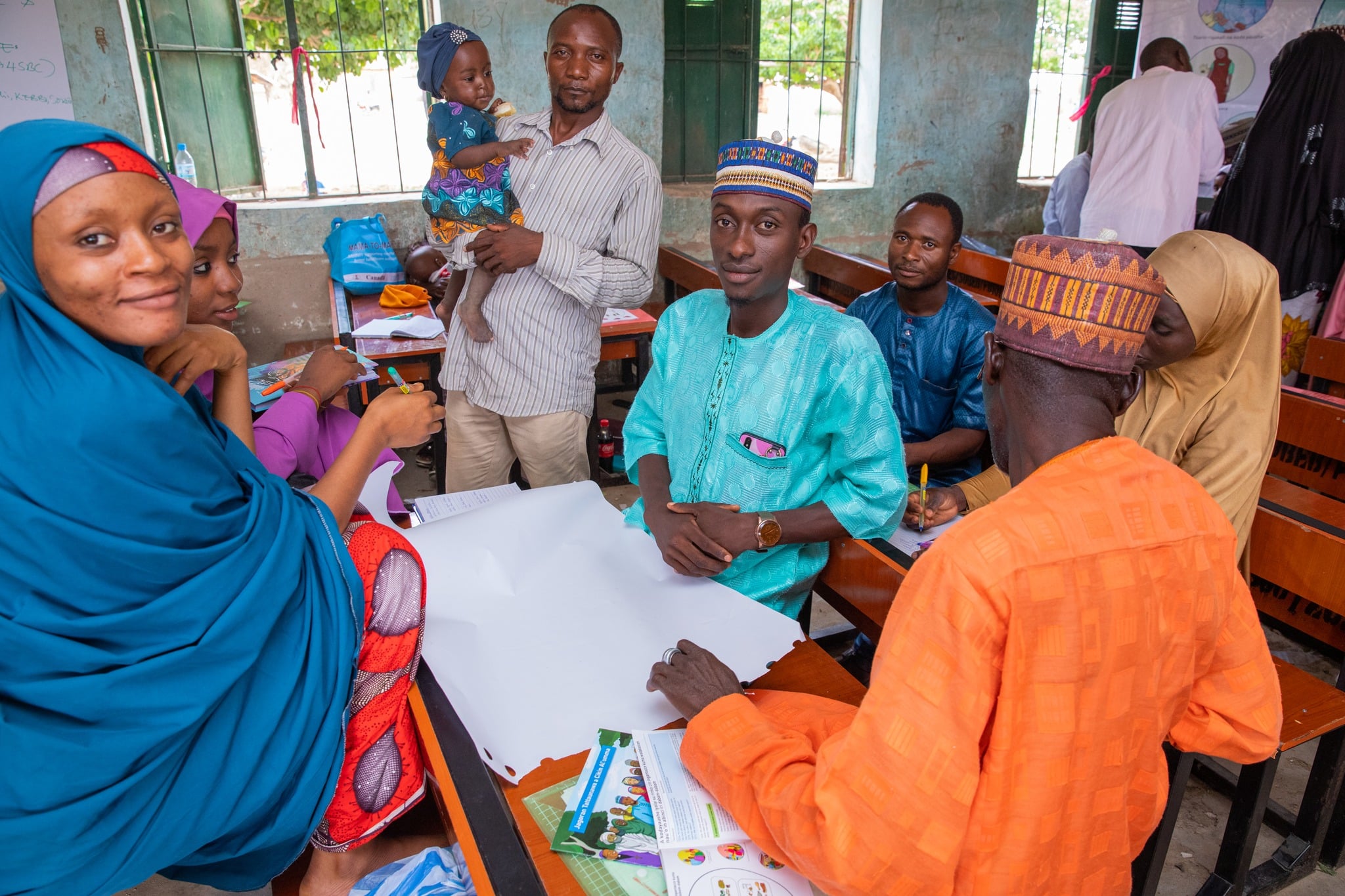The goal was ambitious: strengthen the capacity of local communities in Nigeria, with the help of governments and health care authorities, to plan, finance and implement their own health initiatives and to make decisions about the needs and priorities of their own communities.
To accomplish this, the Johns Hopkins Center for Communication Programs’-led Breakthrough ACTION-Nigeria project would provide training, supporting supervision and technical assistance to help. But there was no funding. The unpaid community members on the local Ward Development Committees (WDCs), local groups sanctioned by the Nigerian government and responsible for health and development activities at the ward level, would have to generate their own financing to implement whatever ideas they developed.
“We didn’t know how many of the WDCs would commit to raising their own funds until we tried it,” says CCP’s Ian Tweedie, senior advisor for the Breakthrough ACTION-Nigeria project. “When we started this approach in 2019, we thought that it would be a huge success if we got half of the 75 wards to actively commit to it. As it turned out, only one ward did not commit. The remaining wards have been continuously implementing and funding activities since then.”
From 2019 to 2024, the approach was expanded from the initial 75 WDCs to 659 WDCs, including 218 wards where local government authorities and state primary health care development agencies in Bauchi, Kebbi, Sokoto, Ebonyi and the Federal Capitol Territory expanded the initiative without direct Breakthrough ACTION-Nigeria’s involvement or supervision – a true sign of sustainability as the project winds down after seven years.
Through personal contributions, donations from politicians and proceeds from small community businesses selling face masks or farmed vegetables, together WDCs raised more than USD $146,000.
Over the course of five years, thanks to this approach, nearly 65,000 pregnant women were transported to pre-natal care appointments and 32,500 were taken to give birth at the health facilities. Nearly 109,000 newborns received their first immunizations, and more than 160,000 children and adults were brought to health facilities for illnesses and emergencies.
Meanwhile, nearly all the WDCs purchased medicine, gloves, beds and more for health facilities in their communities, while 382 (more than half) ensured the completion of construction work or needed repairs in the clinics.
“These activities provided immediate benefits and were very visible to the community, increasing the reputation and standing of the WDC members,” says CCP’s Amina Bala, Breakthrough ACTION-Nigeria’s community capacity team lead. “The WDC members said they were really motivated by that community recognition.”
The Community Capacity Strengthening approach fostered a community-led process where interventions were tailored to local contexts, aligning with available local resources and empowering communities to monitor and evaluate the impact of their solutions, fostering sustainability and efficacy. The approach was adapted from Save the Children’s Community Action Cycle initiative (Save the Children is a partner on the Breakthrough ACTION project).
The initiative also worked to address gender disparities in health care, to promote preventive behaviors and strengthen WDCs’ leadership and management skills including financial management, decision-making and stakeholder collaboration, and encouraging community involvement in decision-making.
Nworie Azubuike, a member of a WDC in Ebonyi state, says his eyes were opened about what his responsibilities were to his neighbors in a way that he’d never before understood. “During the training, we realized that we should not rely solely on the government but rather embrace our community roles… to help alleviate people’s suffering,” he says.
Said Abdullahi Labbo, member of a WDC in Kebbi state: “I appreciate the way we have been groomed at the grassroots level. We have frequent coaching sessions with the Breakthrough ACTION community capacity-strengthening staff and explore how we should go about the activities of the WDC. We receive joy from having these meetings because we always learn a lot.”





